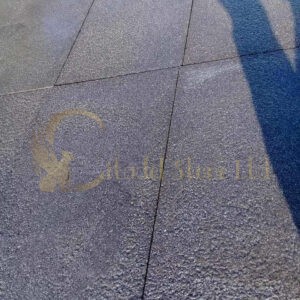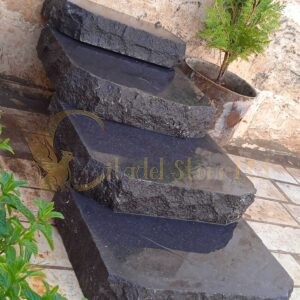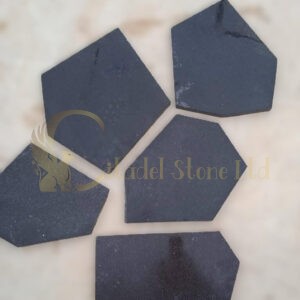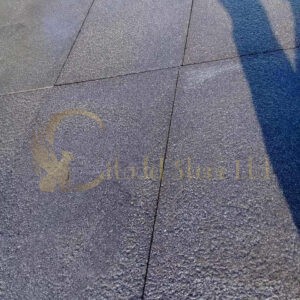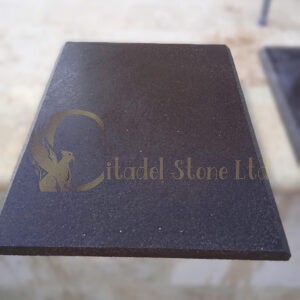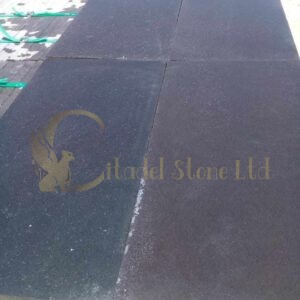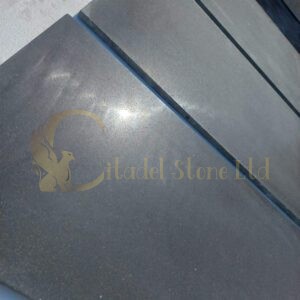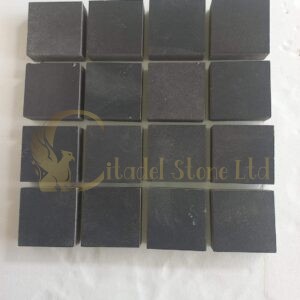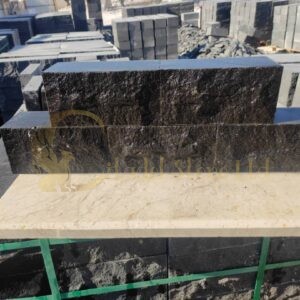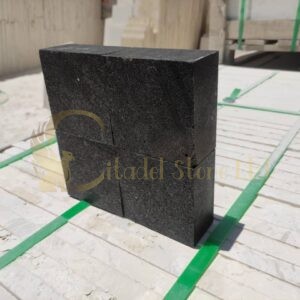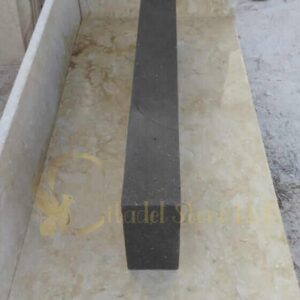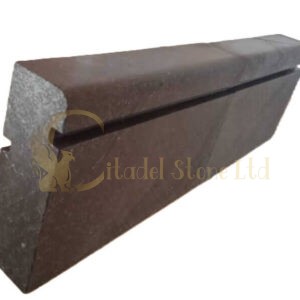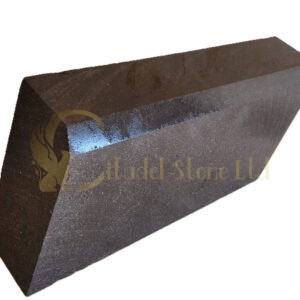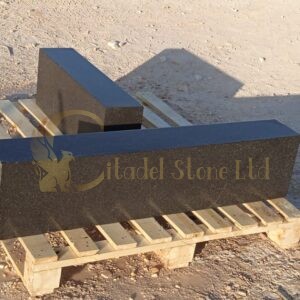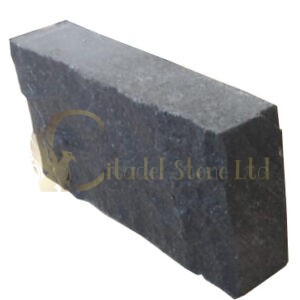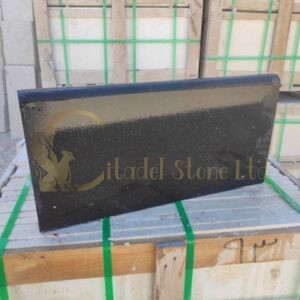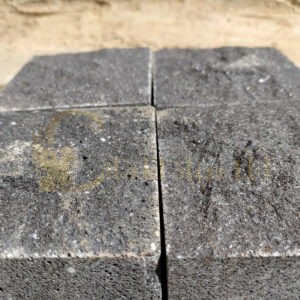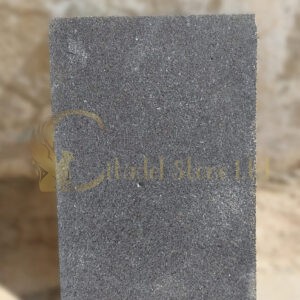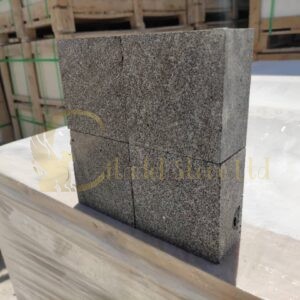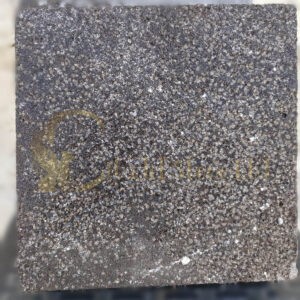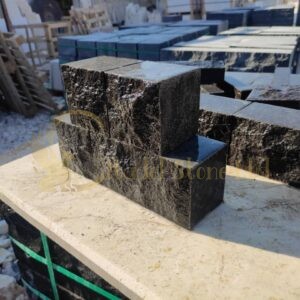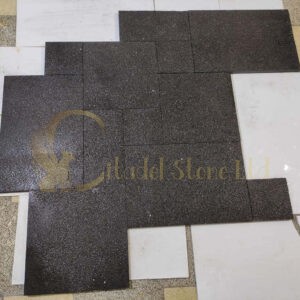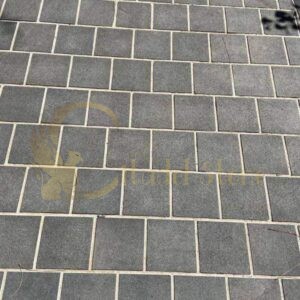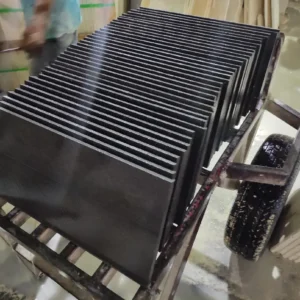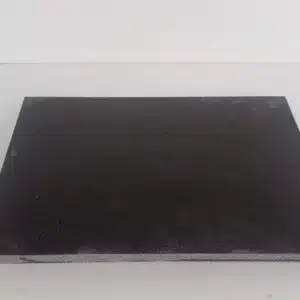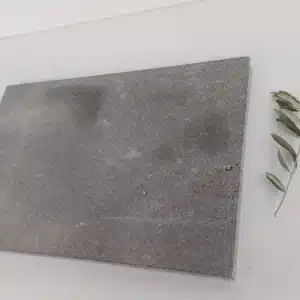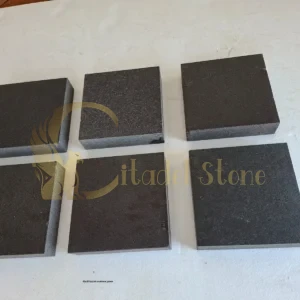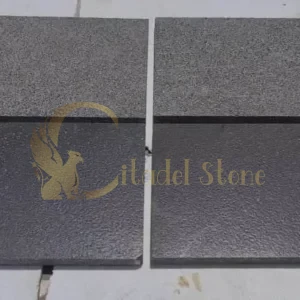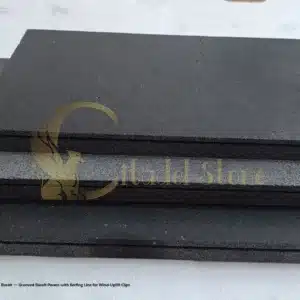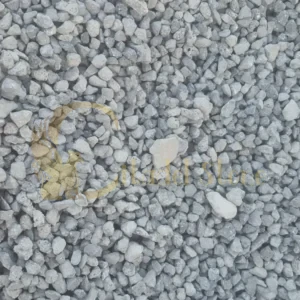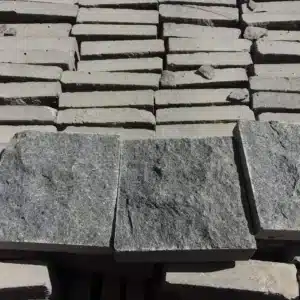Executive Snapshot — Quick Facts & Reasons to Choose
- Quarry-Direct Supply: Guaranteed provenance, quality control, and supply-chain integrity from a single, exclusive U.S. source.
- Architectural & Landscape Products: A complete range of black basalt tiles, durable basalt pavers, coping, wall caps, and large-format slabs.
- Industrial Feedstock Products: High-purity industrial basalt aggregate crushed and graded for mineral wool production, melting, and refractory applications.
- Unmatched Durability: Extremely durable natural stone: the toughest natural stone in the world.
- Superior Hardness: Three times harder than limestone, sandstone, or granite.
- Lasting Performance: It will last forever keeping its original condition.
- Total Customization: We hand-select the most durable & beautiful black basalt tiles for our customers. Citadel Stone supply in all thicknesses, sizes, and finishes.
- Extreme Climate Suitability: With exceptionally low water absorption basalt, our products resist freeze-thaw cycles and extreme weather, making them ideal for any U.S. climate.
- Low Maintenance: Requires minimal upkeep, offering a low total cost of ownership for commercial and residential projects.
- Procurement Flexibility: Available by the tile, by the pallet, or in bulk truckload/container quantities for industrial buyers.
- Aesthetic Consistency: A deep, uniform black color that provides a sleek, modern, and sophisticated finish for any design.
- Expert Support: Backed by Citadel Stone’s technical team for specification, installation, and procurement guidance.
Material & Source Profile — Geology, Provenance & Quarrying
Geological Summary
Quarry Operations & Quality Control
Architectural & Landscaping Applications — Why Architects Specify Our Basalt
Durability Claims for Heavy-Use Commercial Projects
Finishes & Formats
- Honed: A smooth, matte finish that offers a sleek, contemporary look, ideal for interior flooring and wall cladding.
- Flamed (Thermal): A textured, non-slip surface created by exposing the stone to high heat, perfect for exterior paving, pool surrounds, and walkways.
- Sawn: A clean, uniform surface that showcases the raw character of the stone.
- Bush-Hammered: A highly textured, slip-resistant finish suitable for heavy-duty exterior applications.
Design Suggestions
- Modern Plaza: Large-format (900x900mm) flamed basalt pavers with light grey granite or concrete seating elements.
- Luxury Retail Interior: Honed black basalt tiles in a large format, paired with brass or bronze fixtures and warm wood accents.
- Infinity-Edge Pool: Flamed basalt coping and surrounds for a sleek, non-slip, and heat-resistant deck.
- Corporate Entrance: A combination of honed basalt wall cladding and flamed exterior pavers for a seamless indoor-outdoor transition.
- Residential Patio: Hexagonal basalt pavers for a contemporary, patterned hardscape.
- Historic Restoration: Sawn or bush-hammered basalt to complement traditional brick or stone masonry.
- Water Features: The dark color of basalt creates beautiful reflections and enhances the visual depth of fountains and ponds.
- Kitchen & Bath: Honed basalt tiles offer a durable and sophisticated alternative to ceramic for floors and walls.
Industrial & Manufacturing Uses — Crushed Basalt for Wool Processing, Melting & Refractory Feedstock
Overview: Basalt for Mineral Wool (Rock Wool) Production
Crushed Basalt Gradations
- 0–4mm
- 4–8mm
- 8–20mm
Basalt for Melting & Refractory Applications
Handling, Storage, and QC for Industrial Buyers
- Stockpile Management: We manage stockpiles to prevent contamination and segregation, ensuring consistent quality from the first truckload to the last.
- Moisture Control: Aggregate can be supplied with guaranteed maximum moisture content, reducing energy costs for pre-heating.
- QC & Lab Testing: Every batch of industrial aggregate is tested for key parameters. We provide a full suite of documentation with every order.
Industrial Buyer QC Checklist: For every industrial purchase, demand the following documents from your stone supplier to ensure quality and consistency:
- Material Safety Data Sheet (MSDS)
- Chemical Assay (XRF or equivalent)
- Sieve Analysis (Particle Size Distribution)
- Moisture Content Certificate
- Loss on Ignition (LOI) Test Report
- Batch Photos
- Certified Weighbridge Ticket / Delivery Manifest
Specification & Supply Options — Sizes, Thicknesses, Finishes, and Packaging
Architectural SKUs
- 300 x 300 mm (12″ x 12″)
- 300 x 600 mm (12″ x 24″)
- 600 x 600 mm (24″ x 24″)
- 900 x 900 mm (36″ x 36″)
- Large-Format Slabs (e.g., 1200 x 2400 mm)
- 20mm (3/4″)
- 30mm (1 1/4″)
- 40mm (1 1/2″)
- 50mm+ (2″+) for heavy-duty pavers and custom applications.
Industrial SKUs
- 0–4mm (Fine Aggregate / Sand)
- 4–8mm (Coarse Aggregate)
- 8–20mm (Coarse Aggregate)
Packing & Logistics
- Architectural Products: Tiles and pavers are carefully packed in wooden crates, palletized, and shrink-wrapped for secure transport.
- Industrial Aggregate: Crushed basalt is available for bulk loading into tipper trucks or can be packed into super sacks for containerized shipping.
- Logistics: We can arrange for truckload (FTL/LTL) or container shipments to any location in the USA and worldwide.
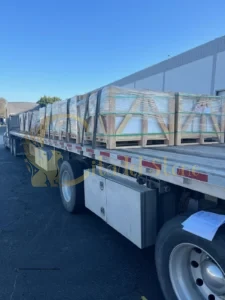
Installation, Handling & Maintenance
Best-Practice Installation for Architectural Uses
- Substrate: Ensure the substrate is clean, stable, and properly prepared according to TCNA (Tile Council of North America) guidelines.
- Adhesives/Mortars: Use a high-quality, polymer-modified thin-set mortar suitable for natural stone and the specific application (interior/exterior, wet/dry).
- Joints: For large-format tiles, maintain a minimum joint width of 3mm (1/8″). Always include movement joints in large installations as specified by the project engineer.
- Pedestal Systems: For rooftop terraces, basalt pavers are compatible with adjustable pedestal systems, allowing for drainage and service access.
Maintenance
- Cleaning: For daily cleaning, use a pH-neutral cleaner. Avoid acidic or highly alkaline cleaners.
- Sealing: Basalt has very low water absorption basalt, but sealing can provide additional stain protection in high-traffic areas like kitchens. We recommend a high-quality penetrating sealer.
- Stain Handling: Address spills promptly. Most common stains can be removed with targeted cleaners.
- Long-Term Care: With proper installation and basic cleaning, basalt will retain its color and texture for decades.
For Industrial Users
- Handling Safety: Use appropriate PPE (gloves, masks) when handling dry, crushed aggregate to avoid irritation from dust.
- Moisture Control: Store aggregate in dry, covered conditions to prevent moisture ingress, which can affect furnace performance.
- Conveyors & Handling: Basalt is abrasive. Ensure conveyor belts and handling equipment are specified for abrasive materials to minimize wear.
- Dust Suppression: Employ water misting or other dust suppression techniques at transfer points to control airborne dust.
Comparative Positioning — Basalt vs Granite, Sandstone, Limestone & Other Basalt Sources
| Feature | Citadel Stone Basalt | Granite | Limestone / Sandstone |
| Abrasion Resistance | Excellent | Good to Very Good | Fair to Good |
| Water Absorption | Very Low (<0.5%) | Low (<0.8%) | Moderate to High (1-8%+) |
| Compressive Strength | Very High | High | Low to Medium |
| Aesthetic Consistency | Excellent (Uniform Black) | Variable (Grains, Veins) | Variable (Bedding, Fossils) |
| Stain Resistance | Very Good | Good | Poor to Fair |
| Freeze-Thaw Resistance | Excellent | Good | Poor to Good (Varies) |
| Verification Note | See TDS for ASTM values | See supplier TDS | See supplier TDS |
Sustainability, Life-Cycle Value & Cost Considerations
- Lifecycle Benefits: The extreme durability of basalt means a lower replacement frequency, significantly reducing the long-term environmental impact and total cost of ownership in commercial settings.
- Recyclability: At the end of its life, basalt can be crushed and recycled as a high-quality aggregate for construction projects, contributing to a circular economy.
- Embodied Carbon: As a durable, long-lasting natural product, basalt can offer embodied carbon benefits compared to materials that require frequent replacement. (Note: Any specific carbon numbers are illustrative/typical and require project-specific LCA.)
- Cost: While premium natural stone represents an initial investment, Citadel Stone’s quarry-direct basalt USA pricing is highly competitive. We recommend requesting a line-item quote to see how affordable our basalt can be for your project.
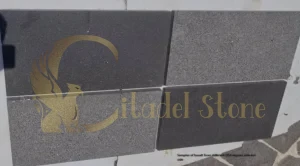
Procurement Checklist — What Specification & QC Documents to Demand
Procurement & Delivery Checklist: To ensure you receive exactly what you specified, use this checklist for any large architectural or industrial stone purchase:
- Technical Data Sheet (TDS): The master document for all performance specs.
- Material Safety Data Sheet (MSDS): For industrial handling.
- Current Lab Test Reports (ASTM): For strength, absorption, abrasion, and COF.
- Chemical Assay: Essential for industrial feedstock buyers.
- Sieve Analysis: For all crushed aggregate orders.
- Chain-of-Custody / Provenance Docs: To verify the origin of the stone.
- Batch Photos: Request photos of the current block or stockpile for approval.
- Sample Approval: Sign off on a physical control sample that represents the agreed-upon color and finish.
- Warranty Document: A clear warranty from the supplier.
- Transport Manifest & Certified Weight: Ensure the delivery manifest matches your order exactly.
- Inspection Upon Delivery: Check for damage and consistency before accepting the shipment.
- Hold-Back Clause: For large contracts, include a retention or hold-back clause pending final inspection and acceptance.
Risk Management & Warranties
- Warranty: We provide a clear, written warranty covering material defects. Request a copy for review.
- Delivery Inspection: All clients should conduct a thorough inspection of materials upon delivery, before installation. Note any damage on the bill of lading before signing.
- Claims Process: In the unlikely event of a material issue, we have a documented claims process to ensure swift resolution. This may involve site inspection and re-testing of materials.
- Contractual Protections: For large industrial or commercial orders, we recommend including clear contractual protections, such as defined inspection windows and acceptance criteria. A legal review of the supply contract is recommended for major purchases.
Basalt quarry products — Citadel Stone case studies
Interstate Reconstruction — crushed basalt for structural roadway base
Project brief: Full-depth reconstruction of a 6-mile interstate section required millions of tons of durable, frost-resistant base and subbase material to support heavy truck traffic and extend pavement life.
Challenge: Tight DOT specifications for gradation, California/temperature-driven freeze-thaw alternation in some sections, on-time deliveries to multiple staging yards, and minimizing truck congestion during peak hours.
Citadel Stone role: Citadel managed quarry extraction and staged crushing to produce engineered base course and subbase blends that met the agency’s gradation and California Bearing Ratio (CBR) performance targets. The team supplied washed and screened material (dust-controlled #3 and #4 blends), prepared certified gradation reports from the on-site lab for each load batch, and produced blended stockpiles to match mix-design tolerances. Citadel also prepared a phasing plan with the contractor to sequence deliveries outside peak traffic hours.
Processing & QA: Multi-stage crushing, vibrating screens, and a closed-circuit wash plant produced low-fines material where required; every plant run included sieve analysis, moisture testing, and L.A. abrasion checks to confirm long-term durability.
Logistics & installation support: Just-in-time truck scheduling, on-site QA representatives during compaction, and technical guidance to the paving contractor on optimal moisture content reduced rework and compaction passes.
Outcome: Pavement sections achieved specified densities on first compaction pass, reduced recurring maintenance needs, and the DOT accepted the project ahead of the seasonal shutdown window. The GC credited Citadel’s batch testing and scheduling for smoother operations.
Coastal Resilience — armor stone & riprap from basalt for seawall reinforcement
Project brief: A municipal seawall and storm-surge protection project required large angular basalt armor stone and graded riprap to protect eroding shoreline and critical utilities from wave action.
Challenge: High marine abrasion and saltwater exposure, precise rock sizing for hydraulic stability, environmental permitting that limited disturbance windows, and barge/tidal delivery constraints.
Citadel Stone role: Citadel quarried and selectively blasted large basalt blocks, produced staged size classes (e.g., 6–12 in, 12–24 in, and larger armor units), and provided rock-sizing curves and placement specifications to the coastal engineer to confirm hydraulic stability. The team coordinated tidal delivery windows, arranged barge transfers, and supplied lifting/handling recommendations to the contractor for safe placement.
Processing & QA: Heavy-duty primary crushers and rock breakers produced uniform, angular pieces. Citadel’s geotechnical lab verified density, porosity, and abrasion resistance so designers could confidently model long-term stability. Material traceability for each lot was maintained to support warranty and permitting needs.
Installation & coordination: Pre-staging on temporary platforms reduced barge time; Citadel’s rigging notes and recommended bedding gradations helped the contractor achieve the engineered interlock required by the coastal design.
Outcome: The reinforced section performed to design under the first major storm season, utilities remained protected, and the municipality commended Citadel for meeting environmental timing windows and providing installation best practices.
Municipal Stormwater Infiltration Fields — washed basalt aggregate for drainage media
Project brief: A city upgraded several detention/infiltration basins to meet new stormwater management standards; engineered infiltration media and drainage layers required clean, washed basalt aggregate with controlled gradation.
Challenge: Strict hydraulic conductivity targets, low-silt wash requirements to avoid clogging, and documentation for permitting showing long-term infiltration rates.
Citadel Stone role: Citadel produced washed, rounded/partly angular basalt chips in specified size ranges (e.g., 3/8″–3/4″, 3/4″–1½”) with minimal fines. The quarry installed enhanced washing and classifying circuits and performed per-batch permeability testing. Citadel supplied stamped lab reports and installation guidance (e.g., lift thicknesses, compaction avoidance, geotextile selection) so the civil contractor could achieve design infiltration rates.
Processing & QA: Continuous turbidity and silt monitoring during washing operations, routine gradation charts for each delivery, and permeability testing using falling-head or constant-head methods ensured compliance.
Installation & coordination: Citadel coordinated sequence deliveries to prevent aggregate sitting in the rain and provided on-site acceptance testing support during placement. The city inspector signed off quickly due to extensive per-batch documentation.
Outcome: Basins met hydraulic performance targets during seasonal storms, and maintenance crews reported minimal sedimentation after six months of monitoring.
Urban Plaza & Landscape — decorative crushed basalt, gabion fill & architectural screenings
Project brief: A civic plaza and adjacent streetscape used basalt crushed stone for permeable paving sublayers, gabion basket fill, and decorative screenings for planters and water features.
Challenge: The design required consistent color and texture across visible aggregates, tight tolerance on washed screening sizes for planters, and low-dust materials for pedestrian areas. The landscape architect also requested sustainable sourcing documentation.
Citadel Stone role: Citadel produced color-matched decorative screenings (1/4″–3/8″ and 3/8″–1/2″), cobble replacements for gabions, and rounded crushed mixes for permeable pavers. They coordinated color sorting, provided product samples for owner sign-off, and supplied EPD-style documentation and quarry-distance CO₂ estimates to support sustainability goals. Citadel also suggested an anti-staining protocol for installers near planter drip zones.
Processing & QA: Fine screening and washing lines produced uniform color and absence of fines; material was stockpiled separately and covered to preserve color consistency. Batch certificates accompanied each delivery and included sieve analysis.
Installation & coordination: Citadel timed deliveries to match the landscape contractor’s planting schedule and advised on installation depths for washing and mulching under planters to avoid aggregate contamination.
Outcome: The plaza achieved the desired aesthetic continuity, required minimal reworking, and the landscape team praised the consistent particle-size blends and color stability across seasons.
Asphalt Plant & Heavy-Duty HMA — high-quality basalt coarse aggregate for pavements
Project brief: An asphalt producer needed a reliable supply of angular, high-strength basalt coarse aggregates for several heavy-duty mixes (truck routes and airport apron repairs).
Challenge: Aggregate angularity, crush-strength, and cleanliness had to deliver predictable asphalt compactability and rut resistance. Stockpile segregation and consistent volumetric properties between runs were also critical to mix stability.
Citadel Stone role: Citadel calibrated its secondary and tertiary crushers to produce crushed angular aggregates in the 3/4″ and 1/2″ nominal sizes with controlled flakiness. They provided routine L.A. abrasion, flat and elongated particle counts, and percent filler data to the asphalt plant’s quality lab. Citadel also managed stockpile blending plans to avoid segregation and implemented a weigh-bridge loading protocol to ensure exact tons per load.
Processing & QA: Regular sampling and check sieves were performed; Citadel implemented a production SOP that flagged batches outside compaction performance windows for rework. Dust control and moisture-conditioning advice helped the plant achieve mix target asphalt content with less variability.
Installation & coordination: Citadel coordinated deliveries to match the plant’s batching schedule, minimizing stockpile aging and moisture fluctuation. On-call technical support helped the asphalt technician tweak gradation blends to meet Marshall/SCB performance targets.
Outcome: Finished HMA mixes demonstrated improved rut resistance and fewer compaction passes in the field. The asphalt plant reduced off-spec batches and praised Citadel’s consistency and technical support.
Industrial Yard & Rail Transfer Pad — crushed basalt for subballast and heavy load-bearing pads
Project brief: A freight-handling rail yard expansion required subballast and compacted base material for a rail transfer pad supporting heavy forklifts and rail equipment. Material needed to resist oil/chemical exposure and allow controlled drainage.
Challenge: High localized loads from rail cars and forklifts, occasional hydrocarbon exposure, and coordination with rail contractors for ballast/subballast elevation tolerances. Stockpiles had to be managed so the material supplied near tracks matched settlement expectations.
Citadel Stone role: Citadel produced graded, crushed basalt subballast mixes with low fines to promote drainage while meeting compressive strength needs. They supplied oil-tolerant stone options (low porosity) and delivered geotechnical lab results showing permeability and resilient modulus. Citadel worked with the rail contractor on lift thickness and compaction energy to match predicted settlement rates.
Processing & QA: Special attention went to producing angular particles for interlock and low-fines fractions tested for infiltration; per-lot certificates provided percent passing and in-place density targets. Citadel also offered spill-response guidance and recommended surface treatments to facilitate hydrocarbon cleanup.
Installation & coordination: Deliveries were sequenced with tie-in railworks to avoid rework; Citadel’s field rep performed compaction acceptance checks and coordinated with the rail inspector. A spare stockpile of pre-measured material was left on site for rapid repairs.
Outcome: The transfer pad met load and drainage expectations, experienced minimal settlement, and the freight operator appreciated the rapid response support during early operations.
Case Selection & Sample Request
- Request a Sample: Contact us to request architectural sample boards showing different finishes, or trial batches of our crushed basalt for wool processing.
- In-Showroom Inspection: Schedule an appointment to view large-format slabs and discuss your project with our technical experts.
Basalt Quarrying Market in the USA: Size, Regional Hubs & Short-Term Outlook
The U.S. basalt quarrying market is maturing from a niche dimensional-stone segment into a broader industrial supply chain, with recent estimates placing national basalt-rock revenues in the low hundreds of millions and steady mid-single-digit CAGRs through the late 2020s. This growth is driven by demand for both traditional architectural stone and industrial derivatives such as crushed aggregate.
Geography shapes supply: the Pacific Northwest (the Columbia River Basalt province across eastern Oregon, Washington and adjacent states) remains the primary domestic source for large, consistent basalt flows used in slabs, pavers and heavy aggregates. Fabricators close to these quarries can offer faster lead times and larger formats than distant import options.
Demand is diversifying. Basalt fiber and basalt-reinforced composites are expanding downstream markets (infrastructure reinforcement, bridge overlays and specialty composites), increasing pressure on upstream quarry capacity and encouraging producers to explore higher-value processing lines (tiles, flamed surfaces, and precision slabs).
Key market risks and buyer strategies: raw-material availability fluctuates with regional quarry output and export competition, so specifiers should require dual sourcing, reserve-slab programs, and EPD/mill-reports for certification projects. For architects and contractors, verifying lab data (water absorption, freeze-thaw, slip ratings) and choosing quarry-proximate fabricators reduces schedule risk and improves lifecycle performance.

